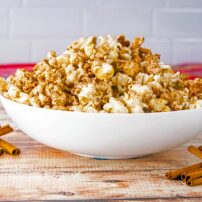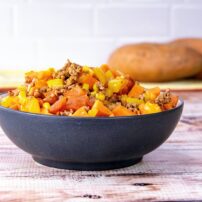
What is the big fuss about buying organic produce and organically grown meats, as opposed to those products that are conventionally grown? Budget-conscious buyers will usually opt for the lesser-priced option, which typically, but not always, is conventionally grown.
Next to price, the problem becomes even more complex due to labeling and various standards for grades of organically rated products.
To try and end the confusion, we will tackle the question in bite-sized pieces, beginning with fresh produce consisting of fruits and vegetables. First, let’s take a look at labeling, or lack thereof.
According to the Agricultural Market Service (AMS) wing of the U.S. Department of Agriculture (USDA), in order to use the USDA Organic label for fresh produce, farmers must obtain a certificate from the USDA. If the farm produces more than $5,000 in annual sales, it must pass a rigorous testing system and pay a certification fee depending on the types of crops being grown. If the farm is a small holding producing less that $5,000 annually, it may use the USDA Organic seal but is subject to detailed record keeping and inspections at any time.
Politics and personal preferences aside, USDA Organic labeling is an attempt to assure consumers that the product they are buying meets certain standards. Organically grown produce may not contain artificially produced pesticides, nor use chemical fertilizers in the soils.

Organic growers are also restricted from using chemical fumigants in the soil, or irradiation or waxes after harvest and washing in preparation for the marketplace. The USDA does list some exceptions for certain situations, and the list is periodically reviewed.
Is organically grown produce more nutritious? There is some evidence of higher concentrations of lycopene, phenol compounds, bioflavonoids and antioxidants in organic produce. Found to be beneficial to health, it is likely these compounds are greater in organically produced fruits and vegetables due to the use of natural composts and fertilizers that feed the soil, allowing the plant to take up more nutrients.
Most soils cultivated by large, commercial growers are depleted of the micronutrients contained in live, healthy soils. Application of chemical fertilizers containing the three major nutrients for plants, nitrogen, potassium and phosphorus is necessary to grow crops. These chemicals feed only the plants, but do nothing to maintain the health of the soil.
Application of composted plant material and decomposed animal manures, on the other hand, feeds the soil microorganisms and allows the plant to take up the nutrients it needs, as nature intended.
The problem of pesticide usage on foodstuffs is another issue with conventionally grown crops. An organic farm typically embraces the entire ecosystem, looking to the biodiversity of the plants, animals and organisms within it to enhance the production of food. Rather than relying on chemicals to kill bugs, it encourages birds and beneficial insects to protect the plants from infestations.
Organic farmers do not grow genetically modified crops (GMOs), but rely on hybridization to increase yields, flavors and resistance to disease.
The Environmental Working Group, a nonprofit research organization, found 20 types of pesticides in a single sample of strawberries it tested. More than 98 percent of the produce it tested — strawberries, peaches, cherries, apples and nectarines — showed residue from at least one pesticide.
It is important to eat fruit and fresh vegetables, but clearly, it is better to eat organically grown if possible.
Other reasons for buying organically grown food is the impact on the planet. Organic farming is sustainable farming. It does not require chemical factories to produce fertilizers or airplanes to spray pesticides. Organic crops have been shown to use less water because organic composts increase the water holding ability of the soil. Additionally, mulches hold in moisture and discourage weeds.
READ MORE IN THIS SERIES• Why Buy Organic? Part 1: Fruits and Vegetables
• Why Buy Organic? Part 2: The Dirty Dozen and the Clean 15!
• Why Buy Organic? Part 3: Top Reasons to Consider Buying Organic Meats and Poultry
• Why Buy Organic? Part 4: Seafood




























Comments